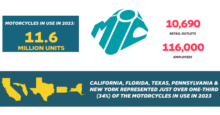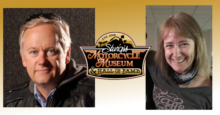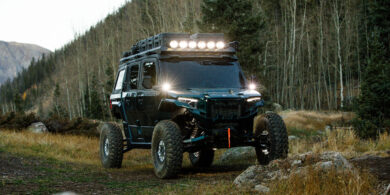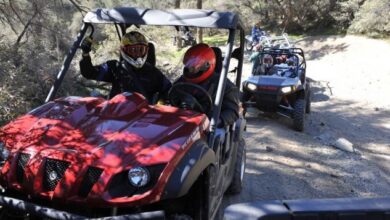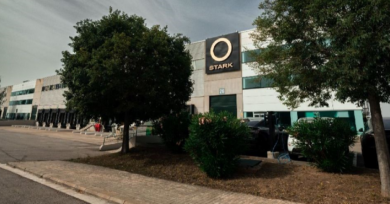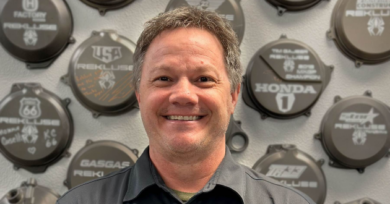Training the next generation of techs
Seacoast Harley-Davidson teams up with community college on tech certification
Al Contois has hit the same roadblock many in the industry have encountered: He has open technician positions, but no one to fill them.
Tired of hitting the same issue head-on year after year, Contois, co-owner of three Harley-Davidson dealerships in the Northeast, partnered with a local community college to develop a motorcycle certificate program for entry-level techs.
Contois and Will Arvelo, president of Great Bay Community College in Portsmouth, New Hampshire, were connected by a mutual friend two years ago, and they then started working on developing the program.
While the project has been a priority to Contois, so he can build up new technicians, it also holds special importance to Arvelo.
“I myself am a former motorcycle mechanic from many, many years ago, and I’ve been a lifetime motorcycle driver myself,” he said. “I remember when I wanted to learn how to fix motorcycles, I went to Arizona, to MMI. At that time there was nothing in the Northeast, and there still isn’t, and so we saw this as an opportunity to build something to supply technicians to Seacoast Harley, and once we do that, then we can begin to supply to the other dealerships.”
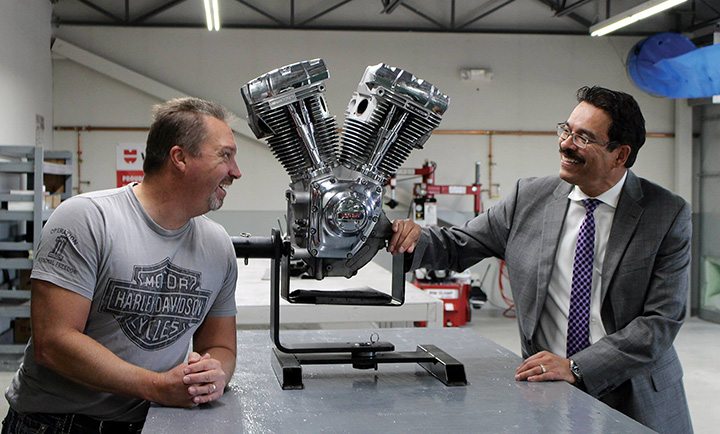
The Motorcycle Maintenance and Repair Technology Certificate program was announced in late June, and classes began in late September. The 24-week program is designed to get technicians ready to join a dealership, where they can further their education as an employee.
“It’s a technician certification program, and it’s really focusing on more entry-level technician work,” Contois explained. “It’s really focusing on the major services — tire changes, oil changes. In the dealer network, I believe that’s really what we need is these entry-level guys coming in. And then once they come in and have the technical whereabouts, we can then train them the rest, if they stay with us. There was a need for that, so this program really focuses on that portion.”
While the program has been launched to allow Contois’s dealerships — Seacoast Harley-Davidson of North Hampton, New Hampshire; Boston Harley-Davidson in Revere, Massachusetts; and Harley-Davidson Shop of Rochester in Rochester, N.H. — to develop a funnel of new talent, the course is also meant to supply trained techs to other local dealerships.
“We will be teaching on Harley-Davidson motorcycles, but the technology or the things that they learn, the outcomes, they will be able to apply what they learn across the industry. It could be a Kawasaki or a Honda; it doesn’t necessarily have to be a Harley-Davidson. We’re teaching on Harley-Davidsons, but internal combustion is internal combustion; all motorcycles have two wheels; all motorcycles have similar electrical components and so on and so forth,” Arvelo said. “Our perspective is that that’s the tool that we’re using to teach, but the person can walk out of there and work at a Harley dealership or at a Honda dealership or a Kawasaki dealership.”
Contois added, “If we’ve got 15, 16 students going through this class every year, I certainly don’t need 15 or 16 entry-level technicians, right? So I’m hoping this will afford an opportunity for all of the other surrounding powersports dealers because it’s not just Harley; it could be converted to metric stores as well. So I’m hoping that these students can find a good career.”
Though the program is offered through Great Bay Community College, the classes are being held at Seacoast Harley-Davidson, and some of the Seacoast H-D technicians have been hired by the college to develop the curriculum and teach the classes.
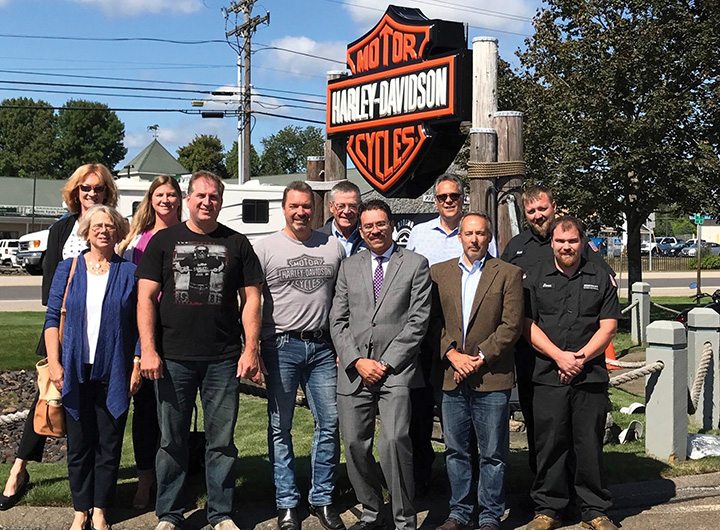
“We’re building a lab at the dealership, which that’s unheard of for a dealership to give us the space to build a lab. They’re going to be working with us in terms of the supplying of the equipment, whatever equipment we need,” Arvelo said. “They’ve been very giving, and they’ve been a really strong partner in the development of this program. So it’s a win-win for them; it’s going to be a win-win for the students and for the college. And we hope that what we build is going to be regional, that we’re going to be able to supply this for the region for motorcycle technicians.”
Contois said having his techs work for the college also helps him out, since he’s used to employing them year-round, despite the seasonality of the motorcycle industry in the Northeast.
“We don’t really lay people off in the wintertime, so we’re always challenged with what do we do with our techs in the winter to keep them busy, and this is an opportunity for some of our senior techs to get involved,” he said.
By the time the first iteration of the program concludes in the spring, Contois is hoping to hire some of the graduating students at his dealerships.
“I’ve got an immediate need right now, where I’d hire, if I could find three or four technicians, entry-level guys just at the Seacoast store, plus we own Boston Harley as well and Harley-Davidson Shop of Rochester, so I could probably use four or five entry-level guys that have gone through some kind of training, and we know that they have some technical ability, where we could take them and train the rest,” he reported.
With the classes being held inside the dealership, the program gives students the real-world feel of coming into a dealership every day and dealing with the same equipment that they will in their professional careers.
Contois is hopeful that even those who complete the program but discover they’re not interested in becoming techs, might still be interested in becoming riders, or even service writers or salespeople after being exposed to the dealership on a daily basis.
“Harley-Davidson, we need to get younger riders interested the brand, so hopefully this will create some kind of ridership and see that it’s not just a bunch of 50-year-old guys that ride around on motorcycles, so hopefully it gets them exposed to not just the technician side,” he said. “Hopefully this will branch out and get exposure for the brand and what we do.”
The 2017 program was unveiled after summer had begun, but Contois said that in the future, plans include marketing the motorcycle certificate to local high school students before they’ve chosen their future college. In addition to assuring the program preps students to become future techs, the goal is to offer students an affordable education with tuition running about one-third of the price as the programs offered by larger motorcycle-focused programs.
Since the program was unveiled by Seacoast Harley-Davidson and Great Bay Community College in June, Contois has heard from a number of dealerships that want to implement a similar program with their local community colleges. It’s an obvious sign that the technician shortage is a problem nationwide, and Contois is taking a big step by working to be proactive about the issue.



